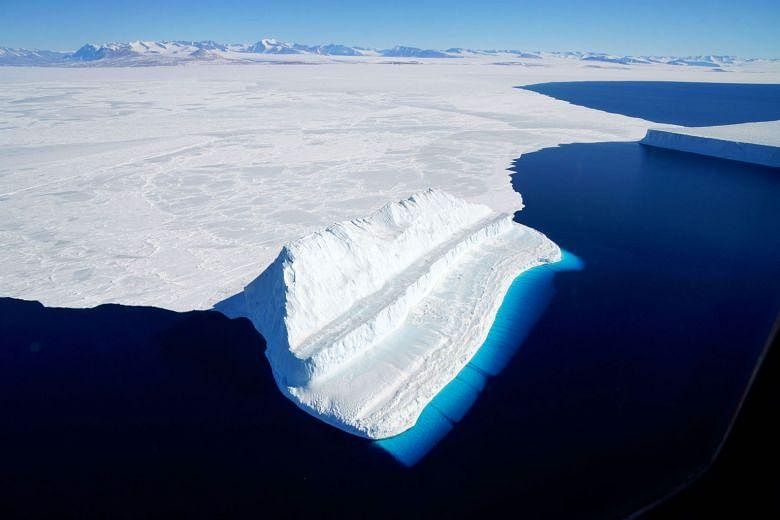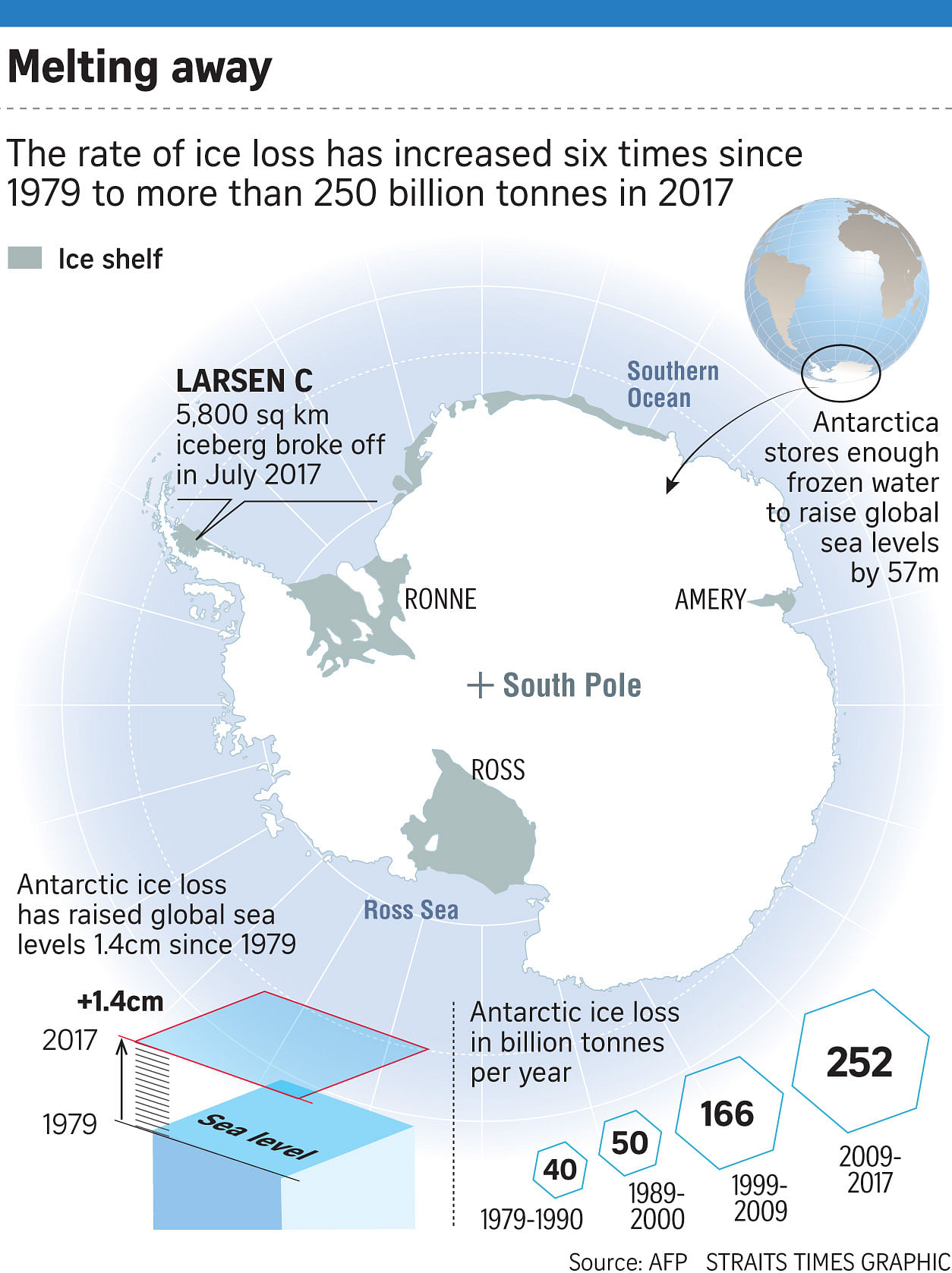TAMPA • Global warming is melting ice in Antarctica faster than ever before - about six times more per year now than 40 years ago - leading to increasingly high sea levels worldwide, scientists warned on Monday.
Already, Antarctic melting has raised global sea levels more than 1.4cm between 1979 and 2017, said the report in the Proceedings of the National Academy of Sciences (PNAS), a peer-reviewed United States journal.
And the pace of melting is expected to lead to disastrous sea level rise in the years to come, according to lead author Eric Rignot, chair of earth system science at the University of California, Irvine.
"As the Antarctic ice sheet continues to melt away, we expect multi-metre sea-level rise from Antarctica in the coming centuries," Mr Rignot said.
A rise of 1.8m by 2100, as some scientists forecast in worst-case scenarios, would flood many coastal cities that are home to millions of people around the world, previous research has shown.
For the current study, researchers embarked on the longest-ever assessment of ice mass in the Antarctic, across 18 geographic regions.
Data came from high-resolution aerial photographs taken by Nasa planes, along with satellite radar from multiple space agencies.
Researchers discovered that from 1979 to 1990, Antarctica shed an average of 40 billion tonnes of ice mass annually. By the years 2009 to 2017, the ice loss had increased more than six times, to 252 billion tonnes per year.
Even more worrying, researchers found that areas that were once considered "stable and immune to change" in East Antarctica are shedding quite a lot of ice too, said the study.
"This region is probably more sensitive to climate than has traditionally been assumed, and that's important to know, because it holds even more ice than West Antarctica and the Antarctic Peninsula together," Mr Rignot said.
The East Antarctic Ice Sheet is the world's largest, containing roughly half of earth's fresh water.
Until now, most research has shown that the majority of melting is happening in the west.
The latest research shows that East Antarctic melting deserves "closer attention", according to the PNAS report.


